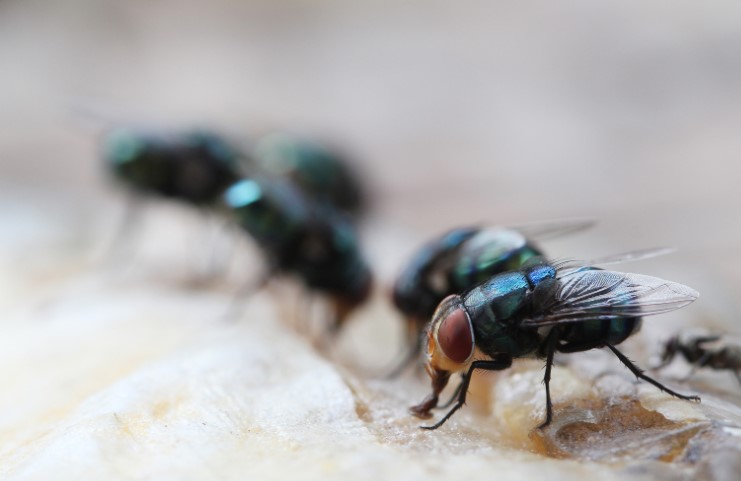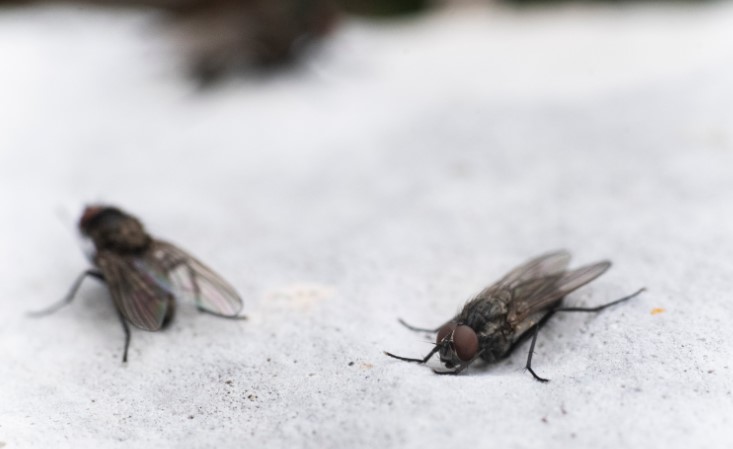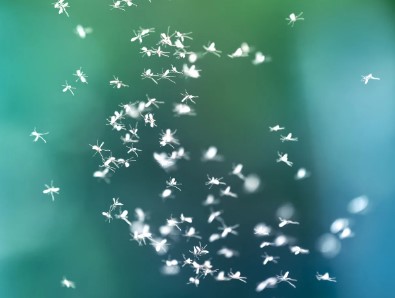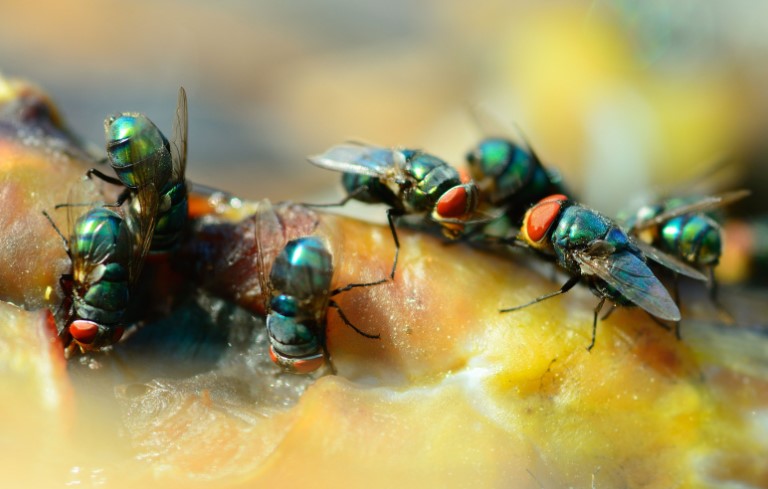Flies are more than just a nuisance—they can spread diseases and contaminate food, making them unwelcome guests in any home. With warmer weather, the problem often intensifies, and keeping flies away becomes a top priority. In this guide on what smells do flies hate, I’ll explore the scents that flies hate and share effective, natural methods to keep them out of your home.
Why Is It Important to Keep Flies Away?
The Risks Flies Pose
Flies are not just annoying; they pose real health risks. They can carry bacteria and pathogens that cause illnesses like food poisoning and diarrhea. It is important to remove fruit flies in home. Here’s why it’s crucial to keep them away:
- Health Hazards: Flies can contaminate food and surfaces with harmful bacteria, leading to health issues.
- Food Contamination: Flies are known to lay eggs on food, which can lead to infestations.
Common Areas Where Flies Are a Problem
Flies are attracted to specific areas in your home, where they find food, moisture, or warmth:
- Kitchens: The abundance of food sources makes kitchens a prime target.
- Garbage Areas: Flies are drawn to the smell of decaying organic matter.
- Outdoor Spaces: BBQ areas and patios can become breeding grounds if not properly maintained.

What Smells Do Flies Hate?
Understanding Fly-Repelling Scents
1. Lemon and Cloves
Lemon and cloves are a classic combination for repelling flies. The citrusy smell of lemon combined with the spicy aroma of cloves creates a scent that flies can’t stand.
- How to Use: Slice a lemon in half and then stud it with cloves. Place the lemon halves around your kitchen, near windows, or on outdoor tables to keep flies at bay.
2. Lavender Oil
Lavender is well-known for its pleasant scent, actually flies find it unbearable. Its calming aroma for humans doubles as an effective fly deterrent.
- How to Use: Add a few drops of lavender oil to a spray bottle filled with water and spritz it around your home. You can also place lavender sachets in drawers and closets to repel flies.
3. Eucalyptus
The strong scent of eucalyptus is another powerful fly repellent. It not only drives away flies but also leaves your home smelling fresh.
- How to Use: Use eucalyptus oil in a diffuser or soak cotton balls in the oil and place them near doors and windows. Eucalyptus leaves can also be hung around the home.

4. Basil
Basil isn’t just for cooking; it’s also a natural fly repellent. The pungent smell of fresh basil leaves is something flies hate.
- How to Use: Plant basil in pots and place them on windowsills, kitchen counters, or outdoor dining areas. This will not only repel flies but also provide you with fresh basil for your meals.
5. Cinnamon
Cinnamon has a strong, spicy scent that flies find repulsive. It’s a simple and effective way to keep them away.
- How to Use: Sprinkle ground cinnamon in areas where flies tend to gather, such as countertops or around garbage bins. Alternatively, use cinnamon sticks in your kitchen or pantry.
6. Vinegar
Vinegar, with its sharp odor, is a great natural fly deterrent. Flies dislike the acidic scent, making it an excellent option for keeping them away.
- How to Use: Mix equal parts vinegar and water in a spray bottle and apply it to surfaces where flies are a problem. You can also create a simple vinegar trap by placing a bowl of vinegar with a few drops of dish soap near fly-prone areas.
7. Citronella
Citronella is a well-known insect repellent, commonly used in candles and oils. Its citrusy scent effectively keeps flies and other pests at bay.
- How to Use: Light citronella candles in outdoor areas or use citronella oil in a diffuser inside your home. It’s especially useful during outdoor gatherings to keep flies away.
8. Mint
Mint’s refreshing scent is something flies can’t tolerate. It’s also easy to grow and maintain around your home.
- How to Use: Plant mint around the perimeter of your home or place potted mint plants indoors. You can also crush mint leaves and place them in areas where flies are a problem.
How To Keep Flies Away?
Practical Tips and Strategies
Maintaining a Clean Environment
A clean environment is your first line of defense against flies. Here are some habits to adopt:
- Regular Cleaning: Wipe down countertops, clean up spills immediately, and don’t leave dirty dishes out.
- Daily Garbage Disposal: Empty trash cans regularly and clean them to prevent odors that attract flies.
Proper Food Storage
Storing food correctly is essential to prevent attracting flies:
- Use Airtight Containers: Store pantry items and leftovers in airtight containers to keep flies out.
- Cover Food: Always cover food, especially during meal preparation or when eating outside.
Managing Garbage and Compost
Flies are attracted to garbage and compost, so managing these areas effectively is crucial:
- Seal Trash Bags: Always tie trash bags securely before placing them in the bin.
- Compost Carefully: Cover compost bins and avoid adding meat or dairy products, which attract flies.

Using Fly Traps and Screens
Fly traps and screens are effective physical barriers to keep flies away:
- Set Up Fly Traps: Use store-bought or homemade traps near entry points and in fly-prone areas.
- Install Screens: Fit windows and doors with fine mesh screens to prevent flies from entering your home.
Natural Predators of Flies
Encouraging natural predators can help control the fly population:
- Birds and Bats: Attract birds and bats to your garden by providing nesting boxes or feeders. They naturally prey on flies.
- Spiders: While not everyone’s favorite, spiders can help keep flies under control in and around your home.
Additional Prevention Methods for Keeping Flies Away
Using Essential Oils
Beyond lavender and eucalyptus, other essential oils also repel flies:
- Rosemary and Tea Tree Oils: These oils have strong scents that flies dislike. Use them in sprays or diffusers around the home.
- DIY Essential Oil Spray: Mix your choice of essential oil with water in a spray bottle and apply it to fly-prone areas.
Placing Fly-Repellent Plants Around Your Home
Certain plants naturally deter flies when placed strategically:
- Marigolds and Tansy: Plant these around the garden or in pots near entryways. Their strong scent is off-putting to flies.
- Strategic Placement: Place these plants near windows, doors, and outdoor dining areas to maximize their effectiveness.

Reducing Moisture and Standing Water
Flies are attracted to moisture, so it’s important to minimize it:
- Fix Leaks: Repair any leaky pipes or faucets that could create damp areas.
- Dry Up Puddles: After rain or watering your garden, ensure no standing water is left to attract flies.
Installing Air Curtains
Air curtains create a barrier of air that flies struggle to penetrate:
- Where to Install: Place air curtains above doors that are frequently opened, especially in commercial kitchens or areas with heavy foot traffic.
- Effectiveness: Air curtains work well in high-traffic areas to keep flies from entering.
Using Light Traps
Light traps attract and capture flies, making them an effective indoor solution:
- Where to Place: Set up light traps in areas with heavy fly activity, like kitchens or patios.
- Setting Up: Ensure they’re placed away from windows to avoid attracting more flies from outside.
Long-Term Fly Control and Prevention Tips
Regular Home Inspections
Regularly inspect your home to ensure it’s fly-proof:
- Check for Entry Points: Inspect doors, windows, and walls for gaps or cracks that flies could use to get in.
- Seal Any Openings: Use caulk or weatherstripping to seal these entry points.
Seasonal Fly Prevention Strategies
Fly activity can change with the seasons, so adapt your methods accordingly:
- Summer Strategies: In warmer months, increase the use of fly-repelling scents and maintain stricter cleaning routines.
- Winter Preparations: Even in cooler months, flies can seek warmth indoors. Ensure your home is sealed and free of food scraps.
Integrating Fly-Repelling Habits into Your Routine
Consistency is key to keeping flies away:
- Daily Routines: Make fly prevention part of your daily cleaning and maintenance routines.
- Natural Repellents: Keep essential oils, plants, and traps in regular use to maintain a fly-free environment.

Conclusion
Flies can be a persistent problem, but with the right strategies, you can keep them at bay naturally. By understanding what smells do flies hate and incorporating these scents into your home, alongside maintaining cleanliness and using prevention methods, you can enjoy a fly-free environment. Start implementing these tips today and experience the difference.
FAQs
1. How often should I reapply natural fly repellents like essential oils?
Reapply essential oils every few days or whenever you notice the scent fading, especially after cleaning.
2. Are these natural methods safe for pets?
Yes, most of these methods are safe for pets, but be mindful of using oils and plants in moderation


0 Comments